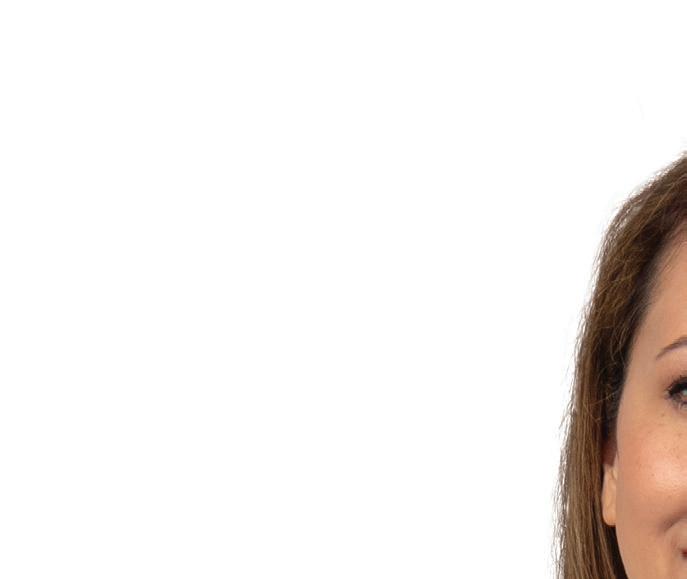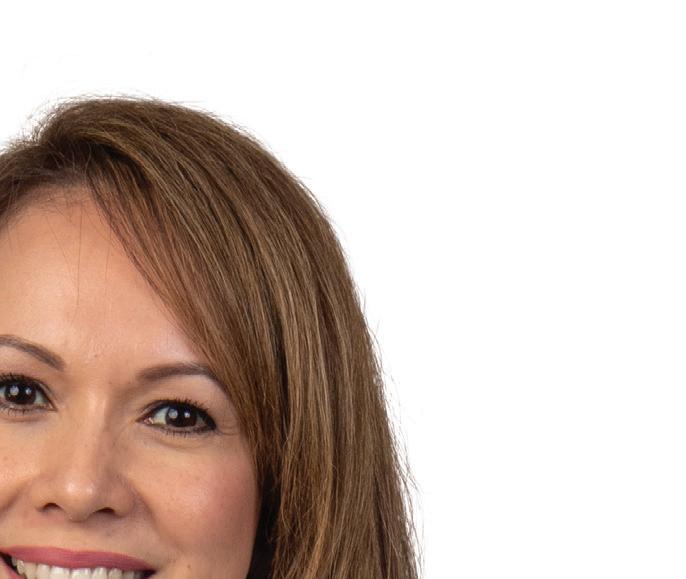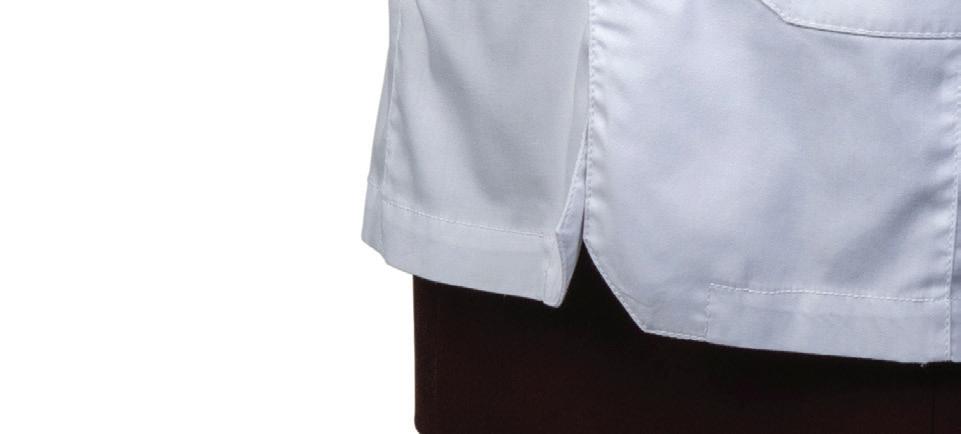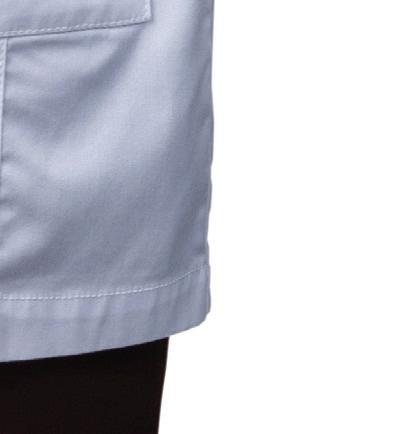Update of the week page 3
Progress of SA’s Proposal on Amazon Lockers on Southern's Campus

Update of the week page 3
Progress of SA’s Proposal on Amazon Lockers on Southern's Campus
Pressing Issue page 2
Is there an official TPUSA chapter at Southern? TPUSA activity on Campus
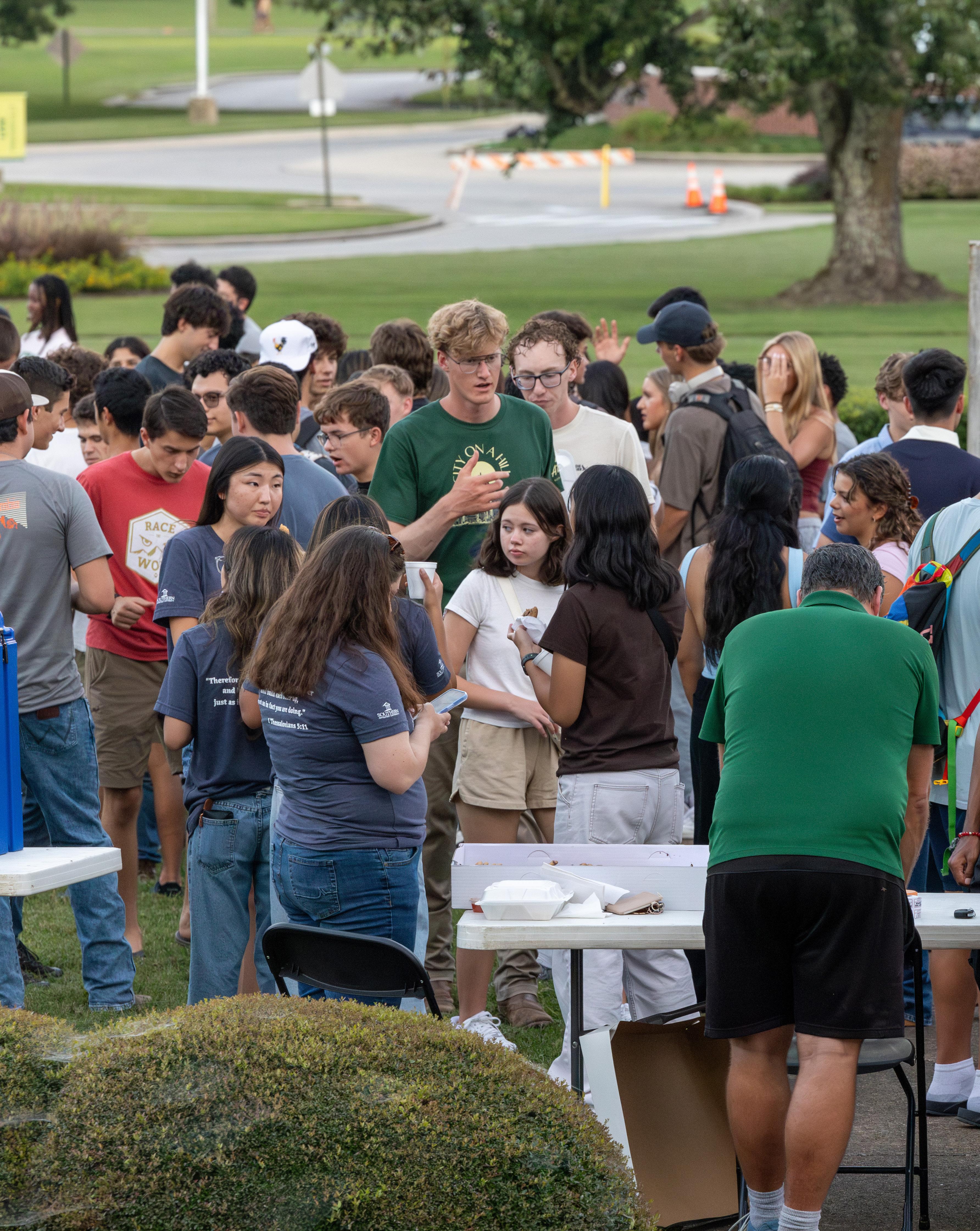
Eliana Morales Managing Editor
Southern Adventist University’s enrollment this fall semester is at a record high, with undergraduate enrollment hitting 2,992 students, according to official data. While freshman enrollment has not broken any records, it is the fourth-largest incoming class, with 642 students.
When combining both undergraduate and graduate students, total enrollment for the Fall 2025 semester stands at 3,346, surpassing the previous record of 3,301 students in Fall 2012. These totals represent Southern’s raw headcount, meaning that they include anyone registered in at least one
course, according to Ryan Harrell, Southern’s website and analytics manager.
Graduate enrollment, which declined after the COVID-19 pandemic, has started to rebound. This fall, the university enrolled 50 more graduate students than last year, marking the strongest graduate numbers since 2019, according to enrollment data.
“There’s been a much bigger focus on recruiting graduate students this year than in the past, which is hopefully playing a role,” Harrell said. However, it is too early to tell from the data how influential the effort will be.
Although graduate enrollment remains below the record Fall 2015 levels, this year’s undergraduate numbers
were strong enough to push the university to a new overall record.
Growth Factors
The School of Engineering and Physics’ introduction of the Bachelor of Science in Engineering (BSE) program created growth for Southern, according to Harrell. Before the BSE program existed, engineering students could only complete a two-year degree.
“Engineering has been a critical part of our growth because anytime you add a new program, you’re bringing in students that weren’t there before,” Harrell said. “You’re adding a completely new pool that has never been accessed before.”
Cindy Vargas, a freshman engineering major with a concentration in mechanical engineering, is one of the students who may not have attended Southern if there was no four-year engineering program. She explained why she chose to study engineering.
“It was just one of the things that seemed to fit me,” she said. “I also took a test that would reveal which careers suit you best, and engineering was in my top ten.”
Sean Walters, associate professor at the School of Engineering and Physics, discussed how the expanded program impacted enrollment.
“As a result of launching the four-
“With increasing enrollment comes more energy, more student club activities and more supportive friendships.” - Blake Laing
Chloe Smith News Editor
A recent controversy arose when Turning Point USA (TPUSA), an organization promoting conservative ideas among students, listed Southern Adventist University as hosting a chapter on its website.
TPUSA is a national nonprofit that promotes conservative principles in educational settings across the United States, according to its official website. The organization was founded in 2012 by the late conservative activist Charlie Kirk, who was fatally shot Sept. 12, according to the New York Times.
On Oct. 15, Fulcrum 7 published an article titled “Turning Point USA Gets a Chapter at Southern University.” The claim was supported by a screenshot of TPUSA’s website, which lists Southern on its chapter map. However, the authors wrongly
continued from page 1
year BSE degree in Fall 2023, engineering enrollment has increased by approximately 90 students above the historical enrollment numbers of the two-year AS in Engineering Studies degree,” Walters stated.
“This increase in engineering students on campus represents over 20% of the total university undergraduate growth since Fall 2022. With the continued strong interest in engineering at Southern that we’re seeing, I believe the program will support further undergraduate enrollment growth on campus in the future.”
Blake Laing, professor at the School of Engineering and Physics, commented on the impact of higher enrollment.
“With increasing enrollment comes more energy, more student club activities and more supportive friendships,” he said.
Similar to how the BSE program boosted enrollment for the School of Engineering and Physics, Harrell predicts the opening of the Ruth McKee School of Business building will foster growth for the School of Business.
Ben Schnell, assistant professor at the School of Business, shared his perspective on the building in an email to the Accent.
“I think the new business building demonstrates donor and administration dedication to providing a top-notch education for our students,” he stated, “and whether or not there is a measurable growth in enrollment from the building specifically, I do think the space contributes significantly to the opportunities on campus, and for that I am grateful.”
Harrell also emphasized the impact of events such as View Southern and Preview Southern on enrollment.
“The data shows that if we can get students here on campus, the chances of them
Southern Accent
speculated the reason for the chapter opening.
"Apparently there is a new TPUSA startup at Southern Adventist University—perhaps in the wake of Charlie’s assassination,” the article reads.
The chapter was actually created in 2022 without permission from administration and has been inactive.
Fulcrum 7’s report led to much confusion and shock on social media, with some questioning why Southern would choose to host an official chapter based off the headline.
Amid the uncertainty, Dennis Negrón, vice president of Student Development, confirmed that Southern is not officially hosting a TPUSA chapter on campus. The discrepancy comes from the fact that the TPUSA website allowed former students to apply for a chapter without confirmed permission from the represented school, even though the website states that permission is required.
According to Negrón, an
enrolling are dramatically higher,” he said. “So, one of our major pushes in enrollment is to get people here to experience Southern because if you experience Southern, you know why Southern is different.”
Harrell’s statement was true of Abby Zinke, a freshman business administration major who chose Southern because she loved the campus when she visited.
View Southern and Preview Southern allow prospective students to tour the campus, meet professors, see the dorms, attend worship and explore downtown.
"View Southern and Preview Southern events are cornerstone experiences in our enrollment process,” said Marco Swaisgood, campus experience manager. “Additionally, these gatherings foster meaningful connections among students from various academies and regions—relationships that often continue once they enroll at Southern.”
Freshman Voices Nathan Profir is a freshman strategic communications major from Colorado. Like many, he has a sibling attending Southern who was influential in his decision to enroll. Aside from his sister, Profir was drawn to Southern because he likes the Collegedale area and the university’s proximity to bigger cities such as Nashville.
“The campus is really nice,” he added.
Alier Vega-Morales, a freshman computer science major from Texas, also had a family member who attended Southern.
“The first time I heard about Southern was through my cousin,” he said. “I wanted to follow in his footsteps.”
Data shows that the number of students from the West Coast has been growing steadily.
“It’s flatlined a little bit since Fall 2023, but we saw a pretty big growth in that post-COVID era,” Harrell said.
Malcolm Maynes is a fresh-
The Accent encourages readers to write articles and voice their opinions. However, the views expressed do not necessarily reflect the opinions of the Accent, the Southern Adventist University or the Seventh-day Adventist Church.
For any questions, comments and article submission information, email the editor at haydenjkobza@southern.edu.
For all advertising inquiries, email alvajohnson@southern.edu.
official request to start a TPUSA chapter from current students was made in Fall 2025 but was denied due to multiple reasons.
“The request to establish a chapter of TPUSA was received by the office of Student Life and Activities after the deadline for student organizations to apply, so there was never a vote 'yay' or ‘nay' on it by the Student Development Committee...,” Negron stated. “However, had the deadline not been missed, the request would have been turned down for another reason—Southern does not admit chapters of political organizations, whether conservative, liberal or moderate.”
2022 TPUSA Chapter
On the TPUSA website, the officers listed from the inactive chapter are Izabel Sigulinski and Noel Hendrickson, both of whom are alumni of Southern.
In an Instagram chat correspondence with Sigulinski, she claimed that the chapter was created in 2022, when she and
man from Central California. He is studying strategic communications with an emphasis on public relations and graphic design.
“I chose Southern because I believe they have the best department and program for my major, which is kinda specific,” he said.
Zinke is from Southern California and was drawn to the university’s surrounding area.
“I really liked how, unlike some of the other Adventist universities, there’s a good variety of things close to campus, such as Hamilton Place Mall, Blue Hole, downtown Chattanooga, Cambridge Square and a variety of parks,” she said. “I also liked how, even though they’re further away, Nashville and Atlanta are a drivable distance from campus.”
Although enrollment from the West Coast has been growing, data shows that most
Hendrickson were students and had an interest in starting a club on campus.
“It never became an official chapter on campus,” Sigulinski stated. “There were students
Editor-in-Chief
Hayden Kobza
Managing Editor
Eliana Morales
News Editor Chloe Smith
Photo Editor
Katie McConnell
who wanted to join, but it fell through because of conflicting schedules.”
She went on to explain how they were able to create an account without permission.

students come from the East Coast.
Among them is Tamar Hamilton, a freshman business-strategic communications major from Maryland. She attended Shenandoah Valley Academy in Virginia, where she first heard about Southern.
“I chose Southern because of its size, atmosphere and the departments, which I felt were current and keeping up with where the world is going,” she said. “The [School of Journalism and Communication] has really made an effort to make me feel welcome and a part of something, and I appreciate that.”
Gabrielle Savoy, freshman business-strategic communications major, also comes from the East Coast. She is from Virginia and grew up hearing about Southern from her family, school and church.
“I’d been planning on coming here for most of high school,”
she said. “I knew I wanted to go to an Adventist school where it was warm, and I felt like God was leading me toward Southern.”
Many freshmen described their first semester at Southern as an enjoyable experience, “pretty great” and even “better than imagined.”
What was surprising about coming to Southern?
“The number of stairs I have to walk on a daily basis. There are too many.” - Maynes
“How kind everyone is here. Not so pleasantly surprised by how humid it is.” - Zinke
“The transition from a high school workload to a college workload.” - Vargas
“How many events and clubs there are.” -Profir
“How quickly I got used to being surrounded by a lot of people I don’t know.” - Savoy
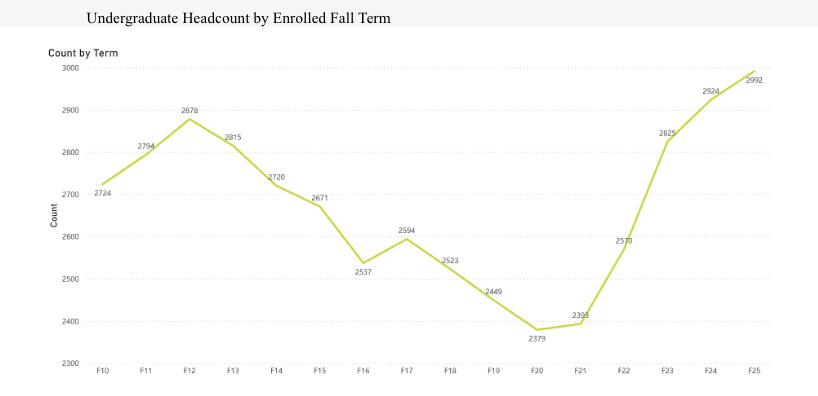
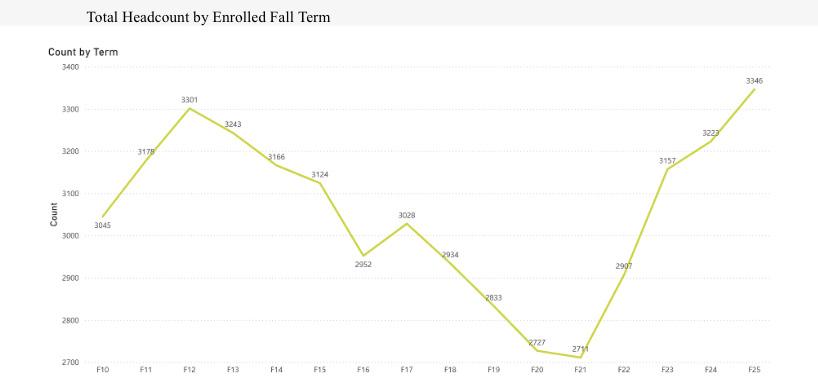
Opinion Editor Samuel Guerra
Lifestyle Editor Rhett Seitz
Religion Editor Nina Bueno
Sports Editor
Matthew Taylor
Staff Sponsor
Alva James-Johnson
Social Media Manager Emma Boughman
Web Manager
Eri Jorge
Reporters
Nyah Jackson
Clint Jones
Jehiely Balabarca
Ava-Caroline Schmidt
Kyla Wetmore
Copy Editors
Allison Grundy
Kyla Wetmore
Photographers
Jaden Segarra
Christian Bass
Circulation Manager
Norelie Cabrera
Layout Designers
Nyah Jackson
Emma Boughman
Ander Aviles
Jaeda Goode Contributor
On Aug. 27, Southern Adventist University Student
Association (SA) President John Hargy presented to the Student Senate a proposal to install Amazon lockers by the Village Market for the use of students and the broader Collegedale community.
“The school has contacted Amazon to start the process, but there are no other updates,” said Hargy at the meeting.
Though there are no guarantees of the Amazon lockers coming to campus, the process has been approved by Senate and is currently pending Amazon’s review with an estimated update in November or December, according to Hargy.
The proposal arose from research done by the SA team, which discovered that an estimated 13,000 packages a year are delivered to student housing, consisting of the dorms and Southern Village. In an interview with the Accent, Hargy said the purpose of the installation of the Amazon lockers is to relieve student workers of pre-processing work for checking in packages while accelerating the delivery processing time.
In addition, Hargy stated that
the Amazon lockers would not come out of SA’s budget and would be provided by Amazon.
Hargy described the function of the Amazon locker as “a temporary mailbox.” The locker would operate as one package per slot. The locker also provides users with a day or two to pick up their package, using a QR code to scan and retrieve the package.
In the case that the locker is full, students would send their packages to the residence halls again.
“It all depends on how many packages we get from Amazon at a time,” Hargy said.
The lockers would be accessible to local residents as well as students, especially as the lockers would reside near the Village Market, which is open to the community.
When asked how the Amazon lockers would impact them, students spoke about how the faster delivery time of the Amazon lockers would affect their lives on campus.
Senior theology major Isaiah Lawrence, stated, “There’s nothing wrong with the system we have, but things do take longer to get here, especially when we need them quickly.”
Freshman film production major, Aryanna Davis, commented on how the proposed lockers could cause her to use
Amazon as a “primary option” for her deliveries on campus.
“If I have an emergency order, I don’t have to worry about being like, ‘Oh, it’s not going to get here on time,' when it could be here a bit faster.”
Lawrence and Davis also expressed some concerns about the security of the lockers. Lawrence said students could share their QR codes with friends to help retrieve packages.
“People have a secure mindset here,” Lawrence said. “But – for example – that doesn’t stop people from stealing stuff - I’ve seen it happen before.”
Another concern brought up by Davis was the community’s access to the lockers.
“I don’t know necessarily about the location and who all has access,” she said. “I’m iffy on that; but, otherwise, I think just anything that makes the
process quicker, I’m on board.” According to Hargy, the next steps in getting the Amazon lockers officially approved would include Amazon coming to campus and doing a need assessment.
“Ideally, [the lockers] would be installed by the end of the semester or before the next semester, if it’s approved,” he said.
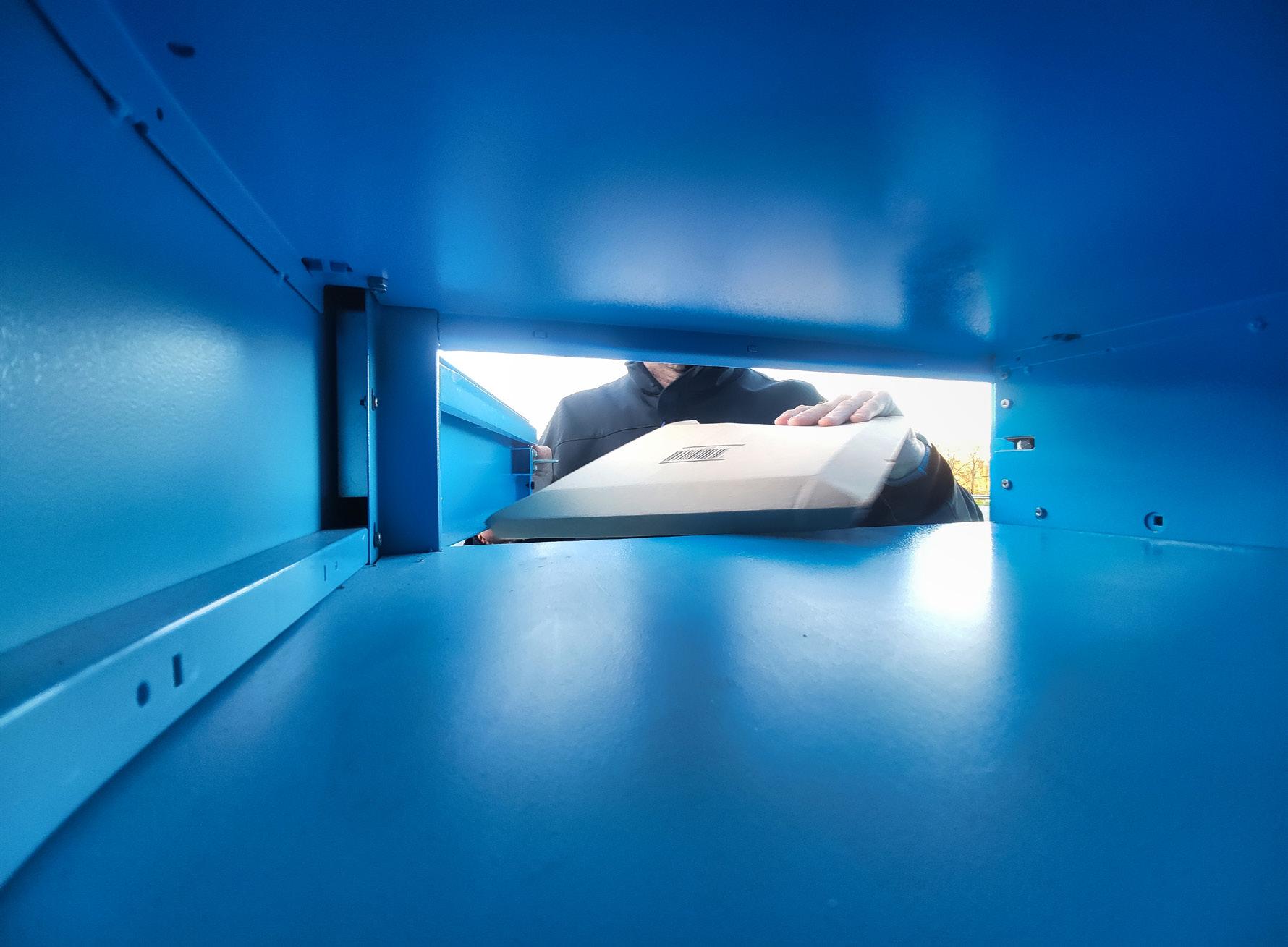
Maddie Schmidt Contributor
Artificial intelligence (AI) is on the rise, leading many to contemplate its impact on student learning. The emergence of platforms such as ChatGPT has made AI more accessible for students, and the use of these platforms has become normalized in recent years.
The normalization of AI has created a tricky situation in writing classes. Many professors and students debate the use of AI and wonder how much it pushes against the boundaries of writing. This leaves the question, how has AI impacted Southern Adventist University’s Writing Center?
In the Winter 2025 semester, the university’s Writing Center conducted 1,007 appointments, according to Sonja Fordham, director of the Writing and Tutoring centers at Southern Fordham stated that since the emergence of AI, there has not been a significant change in the number of students who use the Writing Center resources.
“There is a slight fluctuation in the number of appointments each semester, but there does not seem to be a downward trend,” Fordham stated. “In the winter of 2023, when students first started using ChatGPT, we had a decrease in the number of appointments at the Writing Center. However, the numbers increased in Fall 2023 and have stayed constant since then.”
Although the number of appointments at the Writing Center has remained consistent, Miyoung Park, a junior elementary education major who works for the Writing Center, believes many students turn to AI instead of utilizing the Writing Center resources.
“It is so much easier to just pull up another tab and open ChatGPT than to go on Myaccess [Southern’s online student portal], complete all of the steps to schedule an appointment, then take time out of
your day to actually go to the library for your appointment,”
Park said. “It’s a whole process, so it is definitely more convenient to use AI.”
Park believes more should be done to help students understand the benefits of using resources such as the Writing Center instead of turning to AI. She said students should be continually reminded of the help they have available to them, where they will actually practice and learn the critical-thinking process of writing.
Matthew DeOliveira, a junior accounting major, believes many students do not know what the Writing Center does and how helpful it is. He said that he has not heard students share their experience with the Writing Center.
He explained that his lack of knowledge about the Writing Center has made him hesitant to use it for assistance with his classes and added that he might have used it in the past if he knew specifically what kind of help the center provides.
According to English professor Blake Gorth, some students may shy away from going to the Writing Center because there is a certain vulnerability in showing someone else their writing. Gorth said it requires less vulnerability for someone to input their writing to AI, which is incapable of passing judgment.
Briana Fong, a senior English education major who works for the Writing Center, shared the tutors’ approach to helping students with their writing.
“The Writing Center is a very positive environment,” Fong said. “Everyone here wants to help you in whatever way that we can and give you feedback that professors are not always able to take the time to give you in the writing process.”
Fong said that students may come to the Writing Center at any point in the writing process, whether it is to ask clarifying questions, to put the final
changes on an essay or to get help with brainstorming ideas for a project.
According to Fong, most writing tutors have already taken many of the classes that students need help with. Tutors can give curated advice about different professors or classes from personal experience, something that AI is not able to provide.
Fong expressed that critical thinking is an important skill to foster, and that simply asking AI to fix errors or to improve writing is dangerous, as it trains people to bypass critical thinking.
Although often perceived as a way to cheat on assignments, AI has the potential to be a helpful tool. For example,
Park explained that AI can assist people with reading or learning disabilities. Certain AI platforms will take a reading assignment and turn it into audio, so a student can listen to the material instead.
AI can also be helpful when turning data into graphs, which can be useful when trying to write persuasively.
According to Gorth, AI can be used as another set of eyes to analyze content that has already been written and to help students find background information efficiently for their writing projects. He expressed that it is still imperative to fact check the information before believing it to be accurate.
Gorth explained that AI can be used positively but that it is crit-
ical to use it in moderation and with discernment.
“AI is a tool, just like a car; it can get us places a lot faster than if we just walked,” Gorth said. “However, if it is our primary method of transportation, we stop using our legs [and] that is going to have a negative effect on our bodies. Similarly, with AI, if it is the only thing we rely on, it is going to have a negative effect on our minds. It’s all about using it in the proper context, in the proper situation.”
Students at Southern can make an appointment at the Writing Center at Myaccess>Resources>Schedule Tutoring>Schedule a Writing Center Appointment.

continued from page 2
“The chapter was ‘created’ when I was a student at Southern back in 2022. But by created, I mean we only submitted the details (our names and description of the chapter as the screenshot shows) on the TPUSA website,” Sigulinksi stated.
Hendrickson, who was listed as the president of the chapter, said that the inspiration for starting it was their admiration for Kirk’s approach to having open conversation.
“We thought that starting a chapter would create a space for sharing ideas,” she stated.
The Fulcrum 7 article attached a photo of an Instagram account named @sauturningpointusa for Southern’s TPUSA chapter, which was created in Sept. 2025 according to Instagram’s “About this account” tool. This account is not linked to the TPUSA chapter that was created in 2022.
“I have no idea who runs the Southern TPUSA Instagram account,” stated Sigulinski, “but we didn’t have anything to do with it.”
The Accent reached out to @sauturningpointusa but they did not respond.
TPUSA fliers around campus
The chapter and Instagram account are not the only TPUSA related incidents that have occurred on campus.
On Oct. 14, some students reported finding 5-by-4-inch fliers with quotes from Charlie Kirk littered inside the Hulsey
building and placed in stands on campus.
Emma Rodriguez, a senior political science major and former Collegedale editor for the Accent, was refilling Southern pamphlets around campus for Marketing and University Relations (MUR) when she saw the small fliers in each of the stands.
“These weren’t just in one stand, I found them in every one I checked. Each time, I reached in, crumpled them and threw them away, of course, because their presence felt deeply inappropriate,” stated Rodriguez in a phone text.
In photos of the fliers, some of the quotes, attributed to Kirk, read “Just because you are offended, doesn’t make you right” and “Tell someone about Jesus.” These fliers also had a link to the TPUSA’s website home page.
Andrew Davidson, a junior graphic design major, was at Hulsey for his morning workout on Oct. 15 at 5:30 a.m. when he noticed the fliers.
“It only caught my eye cause of what happened to Kirk last month,” stated Davidson. “I do remember thinking that even though Southern, the institution, is more right-leaning, it’s still strange to see politics like that on the bulletin board.”
Darin Bissell, the facility manager at Hulsey, said that he hadn’t heard of the fliers and was on vacation during the time that they appeared.
“If I had found these postings I would have removed them,” stated Bissell, “and if I was able to find out who posted them,
I would have told them they would've needed to go through the proper channels before posting things in our building.”
All fliers and handouts must have a stamp of approval by the office of Student Life and Activities to be posted in Southern’s buildings and can only be put on specified bulletin boards, according to the Student Organization Handbook.
“Since the Hulsey Wellness Center is part of Southern Adventist University property, our policy is the same as the university's regarding any political postings in campus buildings,” stated Bissell.
The Accent could not find a specific policy for political postings for campus buildings.
In an email to the Accent, Judy Sloan, dean of the School of Heath and Kinesiology, stated that she knew nothing about the fliers and didn’t comment further.
Some students at Southern were surprised to hear about the TPUSA activity on campus.
Rebekah Amann, a junior animation and graphic design major, said she feels Southern should address the rumors going on regarding TPUSA.
“Having quotes from Charlie Kirk floating around campus in general is going to cause a lot of controversy, even if it had nothing to do with Turning Point,” she said. “I feel like the school should clarify they are not doing it, and if someone is doing it, they should stop doing it.”
Bradley Pollett, a senior biology major, explained his opposition to a TPUSA chapter because of the foundation of
Ellen White’s values on campus.
“Ellen White’s writing talks about avoiding entanglement in worldly politics,” stated Pollett. “Given that TPUSA’s primary mission is politics, allowing it on campus would contradict those values.”
For some, the thought of TPUSA presence on campus is concerning.
“It’s disturbing to see materials linked to Christian nationalism and extreme political ideologies infiltrating our campus spaces,” stated Rodriguez. She added that, “The Adventist faith tradition should be based on freedom of conscience and separation of church and state, values that stand in direct contrast to the kind of messaging Turning Point USA often promotes. We should be aware about preserving our campus as a place of learning, inclusion and authentic spiritual growth, not one where political agendas are spread.”
Other students expressed the belief that having a TPUSA chapter on campus could open
discussions and promote free speech.
“I believe that it is healthy for students and staff to experience all sides of the political spectrum and form their own opinions, instead of an organization trying to swing you one way or another,” stated Davidson.
When asked about TPUSA on campus, Davidson described Southern as being more conservative than other universities.
“[TPUSA tries] to combat modern liberalism in universities, but Southern is nowhere near as liberal as other universities, like state universities, so I’m not sure why they would want a presence here unless they want to make the school more conservative,” he stated.
Brandon Ermshar, a senior cyber security major, expressed the importance of open political conversation.
"Regardless of where your politics lie, you should always be able to have a healthy discussion about politics,” he stated.

Eliana Morales
Managing Editor
On the evening of Oct. 18, the office of President Ken Shaw sent an email to students and staff announcing the death of Wizan “Wiz” Sebulburo, a student at Southwestern Adventist University in Keene, Texas.
Sebulburo was also a former Southern student, who attended from 2019-2021, according to Yosemy Chavez, a Southern alumnus and friend of his.
An article from Southwestern stated Sebulburo was a radio, TV and film emphasis major at the time of his death.
“His videos were frequently featured on campus and social media, and he served as the Student Association Public Relations Director, where he used his talents to uplift and connect others,” the article read.
The email from Shaw stated that Sebulburo died last Friday evening in the Chattanooga area. According to the Southwestern article, his death occurred while he was swimming.
The article also included the following statement from Southwestern’s president, Ana Patterson:
‘“Wiz was a bright light on our campus.... He had a deep love for God and a remarkable gift for creativity. His joyful presence, kindness and leadership made a lasting impact on everyone who knew him. Our prayers and deepest sympathies are with the Sebulburo family and all who are grieving this tremendous loss.”’
Shaw’s email stated, “We extend our deepest condolences to the Southwestern Adventist University community. May the peace of Christ, which surpasses all understanding, be with every friend, classmate and family member who is grieving.”
Norelie Cabrera, a junior health science major at Southern, was close friends with Sebulburo.
“Wiz was a quiet soul when I met him,” she said. “Kind of shy, but polite. We soon became close friends and shared many memories in the years to follow. His presence was palpable to those that knew him. May he rest in heavenly peace.”
Zeimaliz Morales-Burgos, a staff member at Southwestern, met Sebulburo when she first started working at the univer-
sity. She said after Sebulburo noticed her crying at her desk on one occasion, he began showing up at her office every day.
“He would bring me a snack or candy to make me feel better,” she told the Accent. “We continued developing a very nice relationship where I felt like he was just bringing back joy.
“He felt like a son to me,” she continued. “He would always use a Bible verse to reassure me that everything was going to be okay, or he would just make a joke or bring something positive to make my day feel better. It was just a blessing.”
Chavez shared what she believed people should know about Sebulburo.
“He was one of the kindest people you could ever meet,” she said. “He always managed to find the good in things, no matter how bad things were. He was the most talented and Jesus-loving person I knew. Whenever something bad happened, he would always tell me, ‘It’s in God’s hands.’ I don’t understand why God took him so early, and I don’t think I ever will—but as he always told me,
it’s in God’s hands.”
Jasper Delim, a staff member at Southwestern, grew up with Sebulburo.
“One of the things I loved so much about Wiz is that he was very intentional, and he really cared deeply about people,” he told the Accent. “He was checking up on people, making sure
they were okay even when he was hurting. He was very much an older brother to many of the Filipino kids back in my own church. I miss him very much and I love him so much. I hope that the world gets to know him more through our stories we tell about him.”
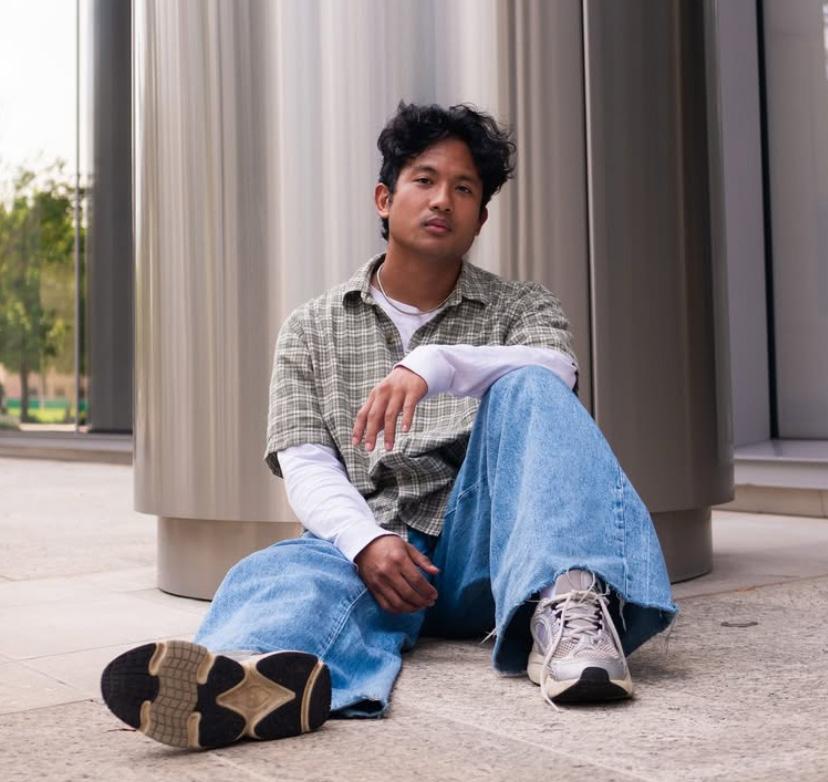
Are questions keeping you up at
Too scared to go to vespers because you don’t have the guts to ask out your crush? Is the CIA stalking you?
Scan the QR code to let us know!

Editor's Note: The Southern Accent has produced a Collegedale News section this issue as part of a national initiative to enhance community news coverage. The local effort, led by Southern's School of Journalism and Communication in conjunction with the Center for Community News (CCN) at the University of Vermont, places student journalists at the forefront of addressing the news desert crisis, a phenomenon caused by the decline of newspapers in local communities. The Accent believes local news is vital to a thriving democracy, and we remain committed to reporting about important issues, novel occurrences and interesting people in the greater Collegedale area. We will publish this special section in five issues of the newspaper this semester. To submit tips or press releases, go to https://southern-accent.org.
Tennessee Secretary of State Tre Hargett recently presented a $200,000 construction grant to Collegedale’s Katie Lamb Public Library.
Mayor Morty Lloyd, Vice Mayor Tonya Sadler and Commissioner Laura Howse joined Hargett and the library’s namesake, former Mayor and Commissioner Katie Lamb for the Oct. 8 presentation, along with Library Board members Kevin Kibble, Stan Cotrell and Jennifer Mullins. Also in attendance were City CFO Michelle Toro, Interim Library Director Sarah Richardson and library staff members.
“It was a beautiful day to celebrate an important investment in our city’s future,” said Lloyd in a press release from the City of Collegedale.
Around mid-March, librarian Regina Mullins and the architect for the library’s construction project completed an application for construction funds with the Tennessee State Library and Archives at the then-city manager’s request, according to Howse.
The application emphasized $500,000 that the city budgeted for the 2025-2026 budget year for remodeling and renovating the library and the city’s investment in the community, according to Howse.
The competitive matching grant is designated for public libraries that are executing new construction, additions and extensive renovation projects, according to the Secretary of State’s website. The grant awards up to $200,000 or 50% of the project’s budget, whichever is less. Recipients must first spend an amount equal to the grant award, then submit invoices for reimbursement.
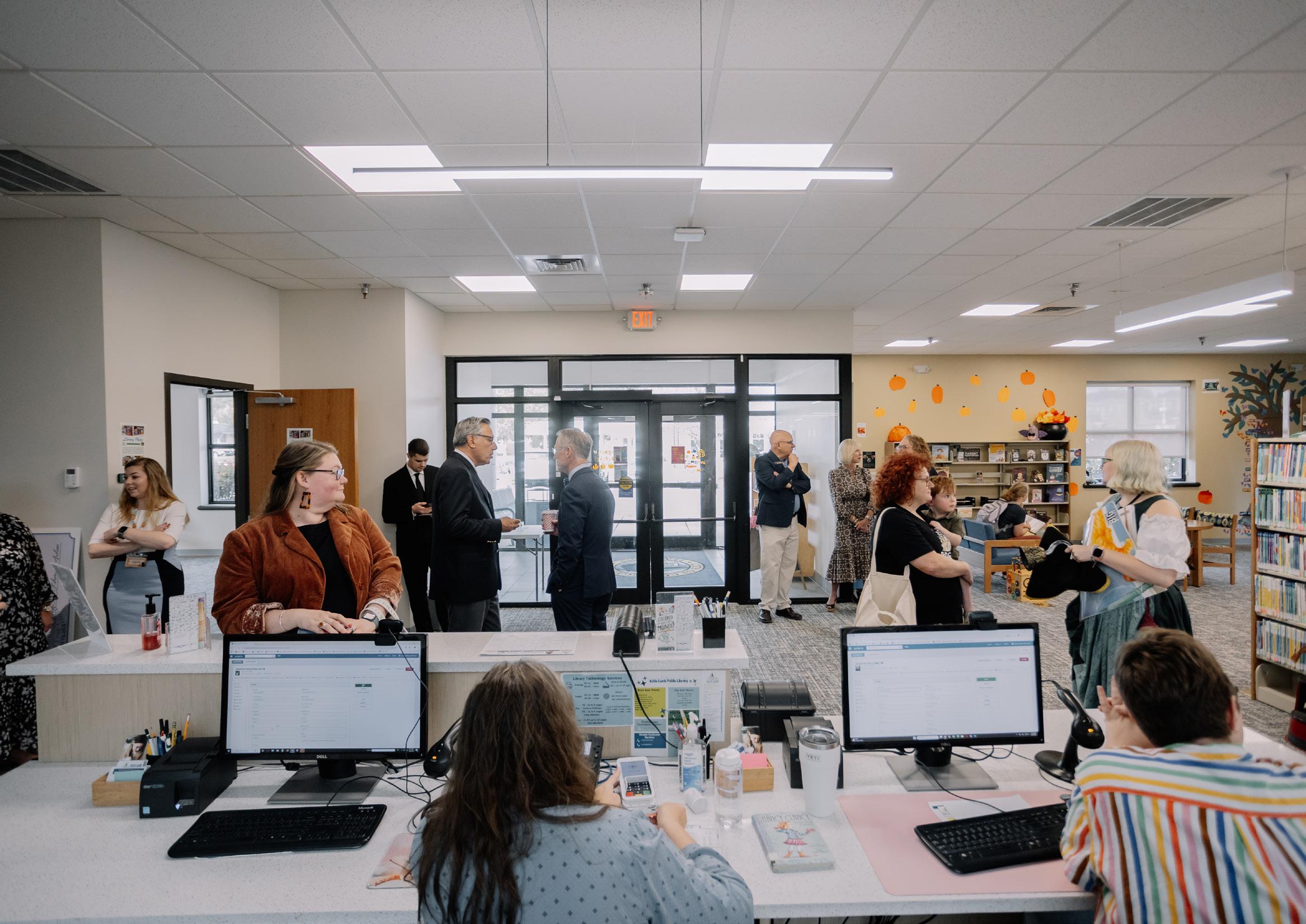
“I am the first to admit I was skeptical because these are typically only given to libraries that belong to the regional library system,” Howse stated in an email to the Accent.
According to Howse, all libraries in Hamilton County were previously excluded from the regional library system because they were part of the Hamilton County library system. The Collegedale library was part of this system until 2011, when funding from a sales tax agreement between the city and county ended, according to a Local 3 News article. Since this change, the Katie Lamb Public Library has
been an independent City of Collegedale library funded by residents’ property taxes, according to its website.
In the grant application form, inclusion in the regional system is a requirement to qualify for the grant. However, Collegedale’s application had the strong support of State Senators Bo Watson and Todd Gardenhire, along with State Representatives Greg Vital and Esther Helton-Haynes, according to a press release from the City of Collegedale.
Howse stated that she reached out to the senators and representatives after submitting the application and
shared that the library in Collegedale had not received money from the state in over 10 years. The library had received county funds when County Commissioner Jeff Eversole secured $30,000 over the last two years, though those funds came from the county general fund.
Howse was also able to meet with State Librarian and Archivist Jamie Ritter on June 13.
“I talked to him about our lovely library and explained that we would very much appreciate being allowed to receive this money,” Howse explained. "He shared that he was reviewing applications, and we
should know something soon.”
After Howse contacted Hamilton County’s legislators, they scheduled a call with Hargett to discuss Collegedale’s application. On June 23, Howse received a call from State Senator Bo Watson with the news that the application had been approved.
“This grant is a clear example of how state and local governments can work together to reinvest tax dollars directly back into our community, strengthening education and our quality of life here in Collegedale,” said Vice-mayor Tonya Sadler in the press release.
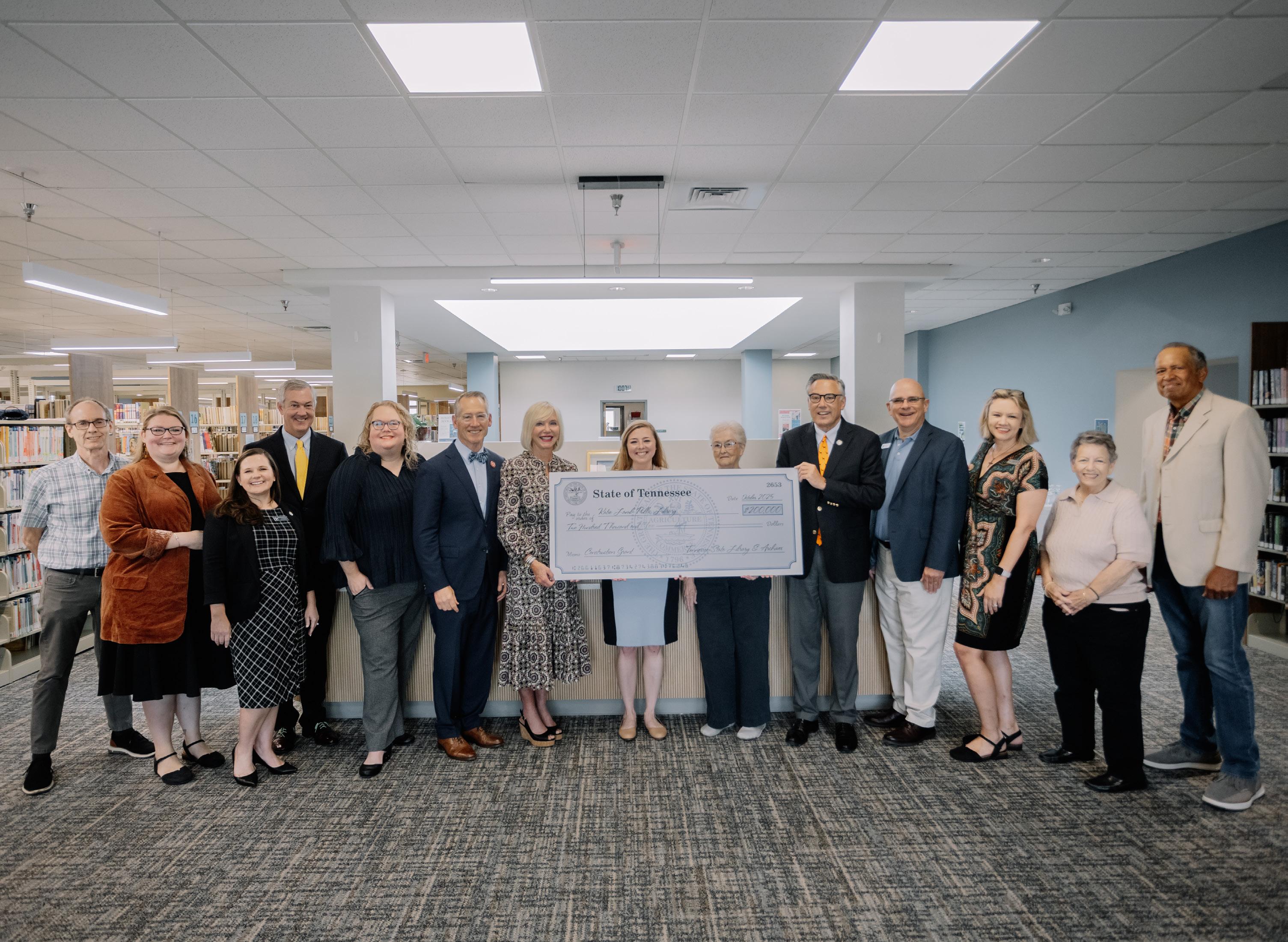
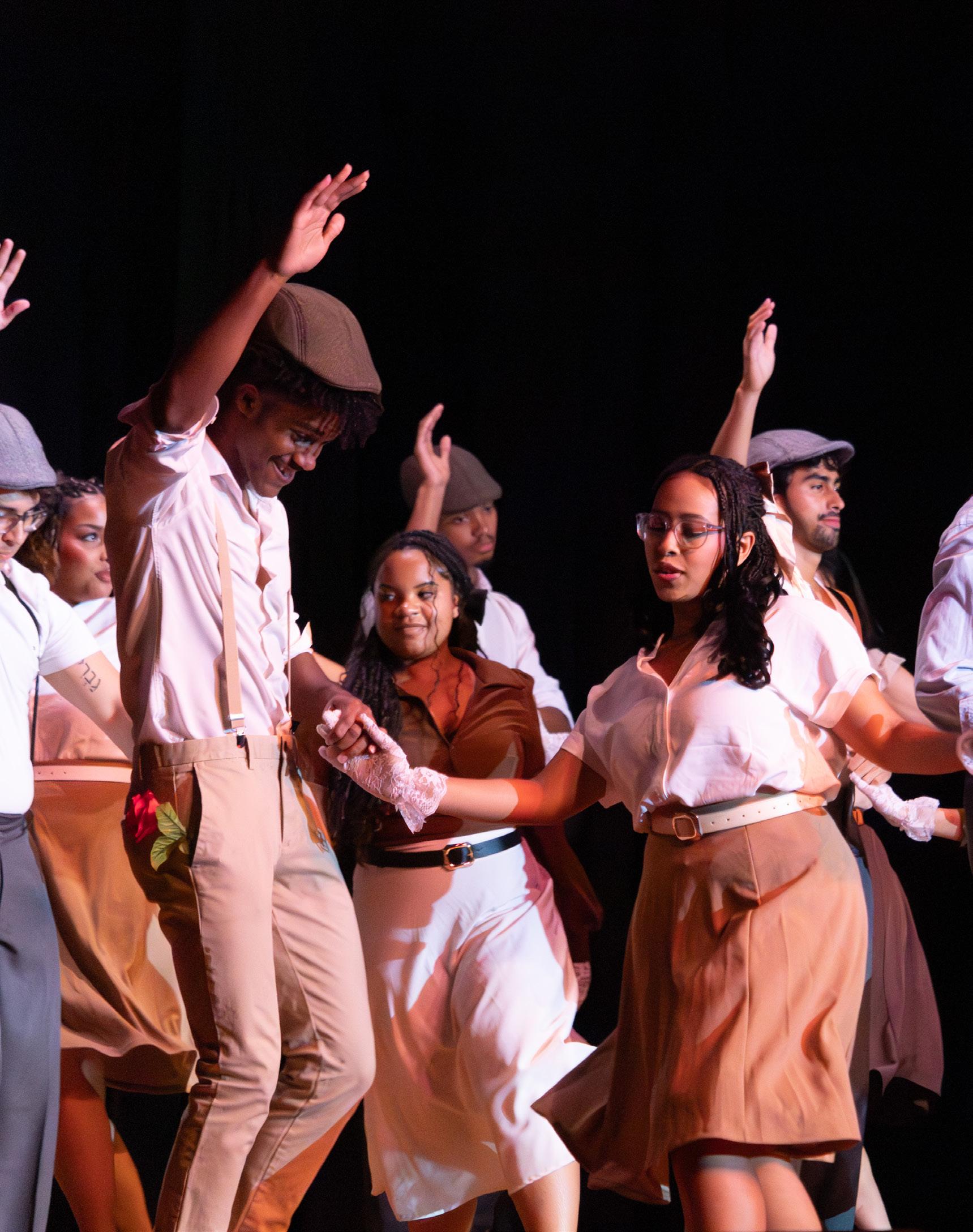




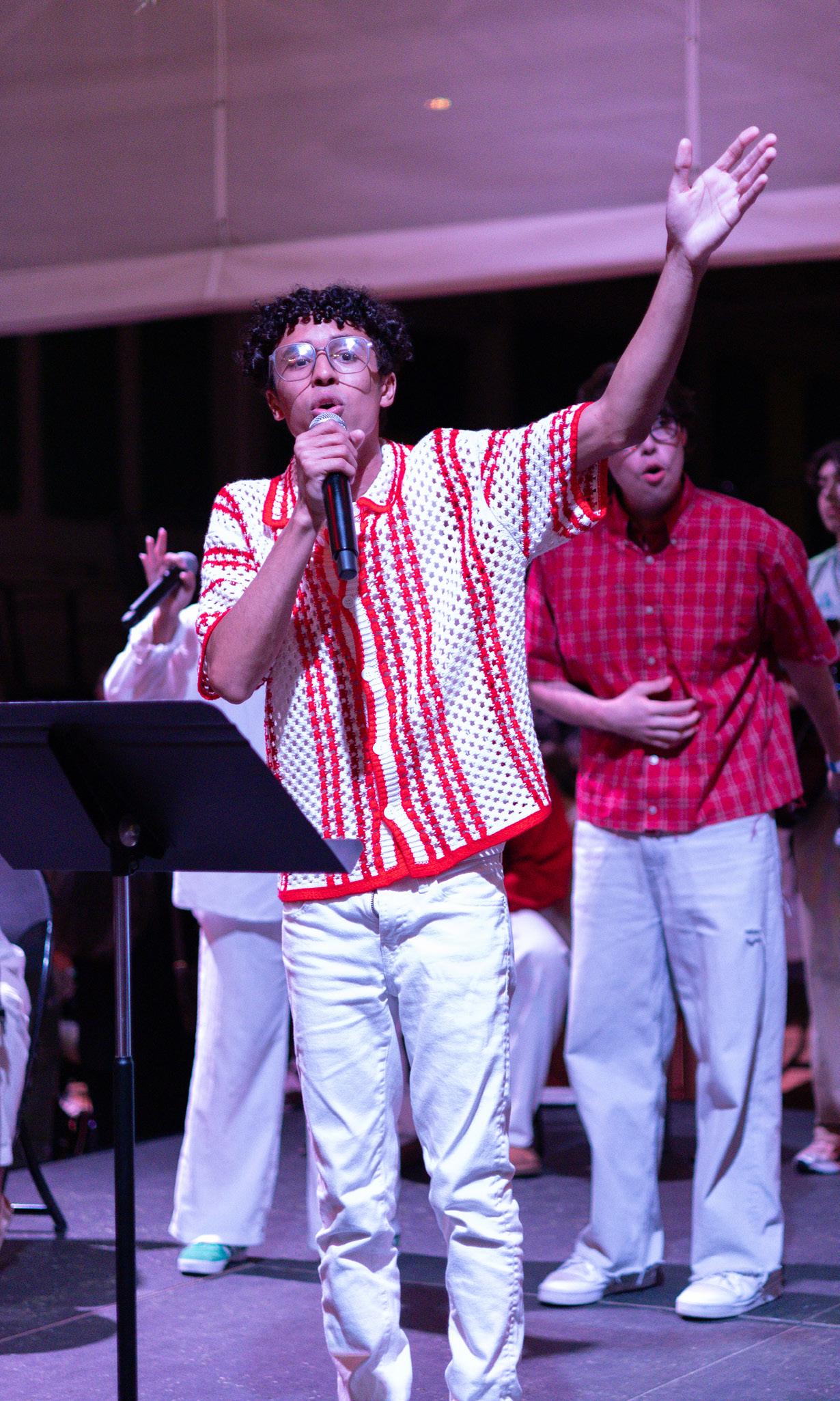
Abby Dizon Contributor
Have you ever considered what are the downsides of being a people-pleaser, especially if your only intention is kindness? According to “5 Differences Between People-Pleasing and Authentic Kindness” by Patricia Williams, “People-pleasing prioritizes the needs of others at your own expense, while kindness requires giving equal consideration to the needs of others and your own.”
Yet, how do you know the difference between genuine kindness and mere cowardice?
Here are some signs you may be a people-pleaser: difficulty saying no to requests that require time you don’t have, inability to stand up for yourself, tendency to apologize often, anxiety about people’s opinions of you and fear of disagreements.
Here are some potential reasons why individuals become people-pleasers:
Insecurity, low self-esteem and a lack of self-love
These negative self-perceptions are the most neglected part of people-pleasers. Feeling uncertain in our own skin, we
desire validation from others. When we lack confidence in ourselves, we oftentimes rely on making others more happy in order to feel accepted or liked. Additionally, if we think that our needs and wants are less important, we create a pattern of putting other’s needs ahead of our own.
Conflict avoidance
In not wanting to drain the energy of an argument, individuals feel that it is easier to agree with the other party, regardless of whether they are right or not. How do you know if you
are conflict-avoidant? Besides inwardly disagreeing with others, you strive to be seen as the nice one, deny that there is an issue, and avoid laying all of your cards out on the table, which prevents you from fully expressing yourself.
Fear of rejection and disappointment from others
People-pleasers often develop their tendencies from the fear of rejection or disappointment, and this can stem from two experiences.
Some may never have felt worthy of love in their childhood, for various reasons, and

“People-pleasers often develop their tendencies from the fear of rejection or dissapointment.”
were afraid of being rejected. On the other hand, they may have received excessive praise from others and lacked exposure to rejection. To maintain that composure, they are willing to do nearly anything for others. Regardless of the origin, people-pleasers tend to overestimate others’ negative reactions.
People will not completely reject you if you don’t meet their expectations. They may be initially upset or disappointed, but eventually they will adjust. If not, it reflects more about them than about you and indicates that they are not the right fit to be in a friendship with you. Ultimately, you are not held responsible for their emotions or actions.
If you are a people-pleaser, you may feel as though your actions do not hurt anyone. Rather, you are simply maintaining peace by agreeing with others. But the sacrifice for peace only negatively impacts your mental health and relationships.
Prioritizing peace with others at the cost of peace within yourself can take a toll on your well-being, increasing both stress and anxiety. Through building assertiveness, you honor your needs and foster a healthier, more authentic connection with others, creating a more meaningful life where your actions align with your needs and values.
Matthew Taylor Sports Editor
After 25 years at AT&T Field in downtown Chattanooga, the city’s Minor League Baseball team, the Chattanooga Lookouts, is preparing to move into a new stadium.
Their future home, Erlanger Park, is currently under construction in Chattanooga’s South Broad District. The stadium is set to open in April 2026, marking the beginning of a new chapter for one of the oldest minor league franchises in America.
The construction on Erlanger Park remains “on time and on budget,” according to News Channel 9. The stadium is being developed by the Chattanooga Sports Authority, an entity formed by the city of Chattanooga and Hamilton County, which oversees the city’s sports infrastructure projects.
The South Broad District development, where Erlanger Park will sit, is designed to become a vibrant mixed-use area, blending sports, retail and housing into one connected community.
Once completed, the stadium will feature an 8,000-seat capacity, a notable increase from AT&T Field’s smaller seating arrangement. The field will serve as a central hub for both the Lookouts and community events year-round. The team’s home games are expected to make up only about 20% of the events hosted at the venue, as the new field will be used for other events, and when not in use, will serve as a public park.
Fans attending games at Erlanger Park can expect improved accessibility and convenience. There will be 2,700
on-site parking spots plus three additional lots nearby connected by the Tennessee Riverwalk.
Although sections of the Riverwalk are currently closed for stadium construction, officials estimate that walking distances from the farthest lots will average only two and a half to three minutes once the project is complete.
The design also prioritizes community use. When not hosting games or events, Erlanger Park will remain open to the public, allowing residents to enjoy its picnic tables, green
spaces and scenic walking routes. The stadium’s open layout mirrors Chattanooga’s ongoing effort to create recreational spaces that serve both fans and families.
The Lookouts’ final season at AT&T Field concluded with a sense of nostalgia and gratitude. Their last regular season game took place on Sept. 7, 2025, closing out a 73–61 record in the Southern League.
The team finished second in the North Division behind the Birmingham Barons, ending on what team president Rich Marz-
ingo described as “a great run.”
Though fans will miss the downtown backdrop of Ross’s Landing, the future of AT&T Field on Hawk Hill is already being discussed. The property will be handed over to River City Company to be “reimagined,” though specific redevelopment plans have yet to be announced.
The move to Erlanger Park symbolizes more than just a change of venue. It reflects Chattanooga’s commitment to preserving baseball tradition while adapting to the city’s
continued growth. The new location will strengthen connections between sports, business and community life, offering locals and visitors a modern destination to celebrate America’s pastime. As construction continues and anticipation builds, one thing is certain: when the first pitch is thrown at Erlanger Park in spring 2026, it won’t just mark the start of a new season. It will mark the start of a new legacy for Chattanooga baseball.

Samuel Guerra Opinion Editor
What do you do in your free time? It’s a simple question that often leads to wistful answers such as “I used to draw” or “I’ve always wanted to learn guitar.” We’ve forgotten our hobbies and those small dreams of trying new things.
When was the last time you actually created something? Do you have anything to show for your time beyond a screen time report?
According to an article from Utah State University, a hobby is anything you do in your leisure time for pleasure, and
sticking to hobbies is linked to an increased sense of well-being.
A lot of hobbies are costly and time-consuming, making them an investment.
Start small, and if you tell yourself that you don’t have enough time in the day for hobbies, check your screen time. With the average person spending hours a day on their phone, even more people seem to scroll as though it were a hobby.
Is media consumption a hobby? Maybe technically. But the hobbies that focus on creating seem to be especially meaningful for well-being.
Personally, I find myself talking about phone usage with friends, always coming to the same conclusion that it’s draining our energy and minds. I would never admit my actual screen time. I would feel embarrassed, even though the numbers look better than they used to.
But I am always eager and excited to talk about creative endeavors, to talk about the scarf I’m making, maybe to share the new recipe that worked out well.
During my first years of college, I went for a long time without a hobby. I read only one or two books per semes-
ter; I never created anything or found the time to write. However, since then, I have been trying to change that.
If you haven’t tried a hobby in a while, try something new. Stick with it even if it takes time. Create something even if it turns out terrible. Be patient. Would you tell a child you didn’t like their finger-painting? Or that their sandcastle looks like the tide already washed up on it? Of course not, but why? Because children are new to everything. So, when we are new at something, we should treat ourselves with the same level of patience.
When you do develop a new skill, finish a project, or bake the perfect banana bread, take account of how you feel. Ask yourself if it was a good use of your time. And see how your self-confidence changes.. Too often I forget that doing creative things brings me so much happiness and inspiration. Creativity in one aspect rolls over to the next. And suddenly, I have more to show for the time I have.
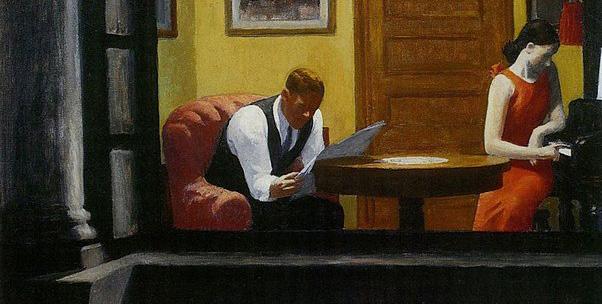
Nina Bueno Religion Editor to them; then come and offer your gift.”
WWJD. You’ve probably heard this acronym for the catchy Christian phrase before. You might even still have a plastic wristband with this slogan that you got at some Christian youth event. I know I do! In elementary or middle school, when the phrase was more popular, it may even have been a regular part of your conversations.
Either way— whether you view the question as totally cringe or cherish it as your personal mission statement— have you ever stopped to really think about what it means? Does anyone actually go around asking “What woud Jesus do?” for every decision that they make?
As you contemplate that in your own life, let’s take a quick look at what Jesus really would do. What would He do when faced with a life-changing decision? How would He handle a difficult conversation? What would He do when He saw a person in need?
Before Jesus chose His twelve disciples—an extremely important decision that would shape His ministry— He went to a mountain-side to pray according to Luke 6:12 NIV.
The Bible shows several examples of what Jesus would do in situations that we can experience in life. In the Sermon on the Mount, Jesus outlined what we should do when we’re at odds with other people.
According to Matthew 5:2324 NIV, Jesus said, “Therefore, if you are offering your gift at the altar and there remember that your brother or sister has something against you, leave your gift there in front of the altar. First go and be reconciled
He also gave counsel on how to treat all types of people, both our friends and enemies, saying, “My command is this: Love each other as I have loved you. Greater love has no one than this: to lay down one’s life for one’s friends” (John 15:1213 NIV).
Similarly, in the Gospel of Luke, Jesus says, “But to you who are listening I say: Love your enemies, do good to those who hate you, bless those who curse you, pray for those who mistreat you. If someone slaps you on one cheek, turn to them the other also. If someone takes your coat, do not withhold your shirt from them. Give to everyone who asks you, and if anyone takes what belongs
to you, do not demand it back. Do to others as you would have them do to you.” (6:27-31 NIV)
Ellen White writes that, “From His earliest years, [Jesus] was possessed of one purpose: He lived to bless others.” (The Desire of Ages, p.700.2, emphasis added).
What do we live for? How would our lives change if we acted in accordance with what Jesus would do? What choices would be different? And would we be where we are right now?
These are all huge questions that I’ve personally had to wrestle with recently. I’ve looked back on my life and seen that I didn’t always act like Jesus, even when I thought I had.
In big decisions, I’ve tried to pray and seek God’s will, striving to do what Jesus would
do. We often seek advice on the “most important” parts of our lives.
But it was in the small, dayto-day decisions that I found myself getting caught. I wasn’t always focused on what Jesus would do in what I said, how I reacted, how I treated people, even what I thought. These areas seemed too insignificant to garner much attention. And yet, the little, day-to-day decisions add up to become important ones in life. They set the foundation for the big, momentous life decisions. So, I wasn’t truly living to bless others and to do as Jesus would.
As I reflected, I found that I would have changed tons of choices, big and small if I’d truly been determined to live like Jesus and ask WWJD over every
small part of my life.
And as you reflect, maybe you will see that, too. Like me, you may wish to go back and make those changes, react differently, say something else, or make a different choice.
The available option now, however, is to go forward and live differently, just as Jesus told the woman who had sinned, “Go and sin no more.” (John 8:11 NKJV). We can’t change the past. But Jesus can change our future if we choose to follow in His footsteps, as we go where He has gone, and do what He would do.
We don’t have to ask in regret, “What would Jesus have done?” We can now ask in hope, “What will Jesus do in my life, as I choose to follow Him?”

Rhett Seitz Lifestyle Editor
Whether on the sports field or the classroom, one phrase that almost everyone has heard is, “Never give up”—one of those timeless pieces of advice that we’ve been given since childhood. And, honestly, I believe that perseverance is one of the most valuable character traits.
When the going gets tough, sticking it out can build strength and character. If we quit at every hardship, we will never accomplish anything worthwhile. If we have already made it to college even, it’s because we refused to quit.
Some of the most successful people in history pushed
through when everyone else walked away. American inventor, Thomas Edison, could have quit after many failed attempts to develop a commercially viable lightbulb, but he refused to stop until succeeding. Michael Jordan could have given up after not making his high school basketball team—but didn’t.
But what if quitting is, sometimes, the best thing we can do? What if our culture has glorified never giving up so much that it’s led us to burnout, broken relationships and endless stress? What if quitting, at the right time, could lead to healing, freedom and even success in a different direction?
Last week, I talked about the importance of saying “no.”
Sometimes, saying “no” means knowing when to lower your fists, step out of the ring, and stop fighting a battle no longer worth fighting. Most of us, unfortunately, don’t know when it’s time to let go. Take athletes who play past their prime. After winning seven Super Bowls, Tom Brady could have retired at the height of his career. But he refused to, and many say it cost him dearly, even his marriage. Some politicians stay in power long after their best years, while the public pleads for them to step down. Sometimes, quitting isn’t a sign of weakness but wisdom.
So—when is the right time to quit?
Quitting isn’t always about giving up. Sometimes, it’s about moving on. It’s about realizing that holding on too long can hurt more than letting go. It can mean leaving a toxic friendship, stepping away from a dream that no longer fits, or changing direction when God is leading us elsewhere. Quitting can be courageous when it means choosing peace over pride.
The Bible talks about this principle. Jesus says that to truly find life, we must give up our own desires and submit to His will. In other words, we must surrender. We must stop believing that we can save ourselves. True salvation doesn’t come from trying harder, but from letting go and trusting
Him completely. Maybe the lesson isn’t to never quit. Maybe it is to let go of what keeps us from becoming who we were meant to be. Maybe the strongest thing we can do is to stop fighting battles that God never called us to fight.
Author and philosopher Eckhart Tolle said, “Sometimes letting go is an act of far greater power than holding on.” So, yes, keep fighting when it matters. Keep showing up when life gets tough, but also have the wisdom to know when to lay something down—because, sometimes, quitting isn’t losing but is the only way to win.



8:00 pm - 9:00 pm Student Association
Senate @ Bietz Center, First Floor, Old Southern Shoppe.

• Alumni Homecoming.
• 6:54 pm Sunset

Wed
Flag Football
6:00 pm
- Tteokbokki Touchdown vs Red Flags (Ladies’ B)
- Touchdown Divas vs Flagmingos (Ladies’ B)
- Deep Ball vs Bearly Atletico FC (Men’s B)
7:00 pm


• 7:30 pm Vespers: Student Missions @ Collegedale Church of Seventh-day Adventists
8:30 pm Missions Expo @ Iles P.E. Center
• 2:00 pm - 4:00 pm History Club’s Renaissance Faire @ Goliath Wall, $2.00 fee.
Friday — 24 Sunday — 26 Tuesday — 28
8:30 am - 12:00 pm: Lecture: Florence Oliver Anderson Series, Donna Cardillo @ Iles P.E. Center.
Start of Alumni Homecoming. Purple Thursday. Psychology Sypmosium. Convocation @ 11:00 am: Ellen G. White/Adventist Heritage, Richard Davidson (Collegedale Church of Seventh-Day Adventists)
• 7:30 pm: Recital: General #2 @ Ackerman Auditorium.
— 25

Alumni Homecoming.
• 10:00 am SOAP: Hiking, Outdoor Church @ Wright Hall.
• 4:00 pm Concert: Symphony Orchestra Reunion.
• 7:00 pm Evensong: School of Music Choirs @ Collegedale Church of Seventh-day Adventists.
• 8:00 pm - 10:00 pm Open Challenge Course and Zipline @ Outdoor Education Center.
— 27
• 7:30 pm: Recital: General #3 @ Ackerman Auditorium.

- Blitz & Sacks vs Broncas (Ladies’ B)
- Chain Movers vs One and Done (Men’s A)
- Manny loves Zaxbys vs Young Bold Gifted (Men’s B)
8:00 pm
- Team Rex vs Blitzcraig (Men’s A)
- Wranglers vs Grandma’s Boys (Men’s B)
- Fast Guys vs Old School (Men’s B)
9:00 pm
- Punt Intended vs 99problemsbutablitzaint1 (Ladies’ B)
- Fertbal vs Hot Chubb Time Machine (Men’s B)
- Shalom Yahweh vs 2 Hand Touchers (Men’s B)
Intramural Schedule: Thu
Flag Football
6:00 pm
- Return of the Benchwarmers vs Sarang Stealer (Ladies’ B)
- Touchdown Divas vs Red Flags (Ladies’ B)
- First Downers vs Chiefs (Men’s B)
7:00 pm
- Bring Your Own Blitz vs Sack Attack (Men’s B)
- Mossed vs Third-Year Freshman (Men’s B)
- Chino Hills vs Alpha Males (Men’s B)
8:00 pm
- Always Open vs 67ers (Men’s B)
- Sack Masters vs Young Bucks (Men’s B)
- Deep Ball vs Bibim Ballers (Men’s B)
9:00 pm
- Tuddie Buddies vs Clankers (Men’s B)
- Wranglers vs Ooga Booga (Men’s B)
- Manny Loves Zaxbys vs Bearly Atletico FC (Men’s B)
3. The Commons
1. Little Debbie Parkway 2. Four Corners Cafe
Become an advanced practice nurse and earn a doctor of nursing practice at the same time.
The BSN to DNP program mentors bachelor’s degree-level graduates as they gain necessary RN experience through an advanced nursing practice emphasis of their choice.
Options include:
• DNP/MBA
• Lifestyle Medicine
• Nurse Educator
• Nurse Practitioner (emphases include Acute Care–Adult/Gerontology, Primary Care–Adult/Gerontology, Family, and Psychiatric Mental Health)
Call or visit online to find out how to get started.


